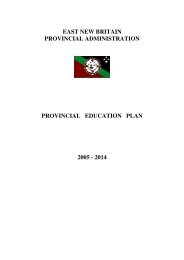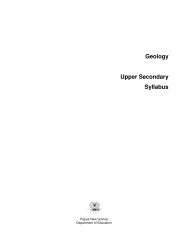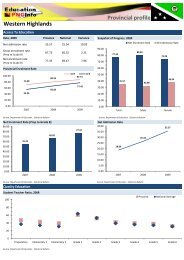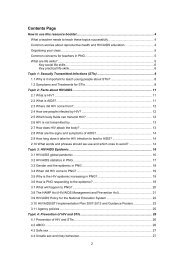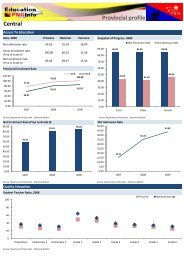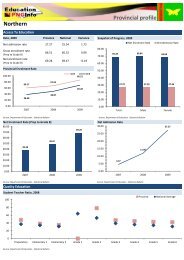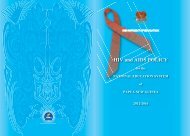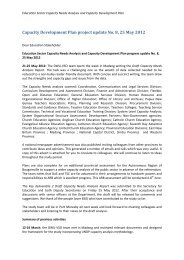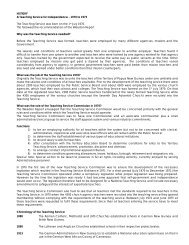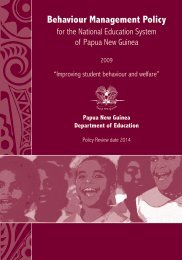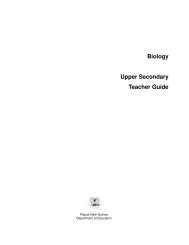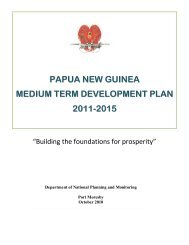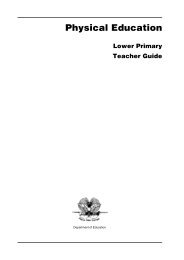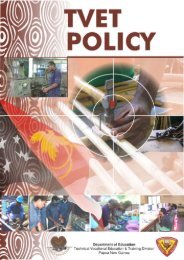English Lower Secondary Syllabus - Department of Education
English Lower Secondary Syllabus - Department of Education
English Lower Secondary Syllabus - Department of Education
Create successful ePaper yourself
Turn your PDF publications into a flip-book with our unique Google optimized e-Paper software.
<strong>English</strong>Secretary’s messageThis syllabus is to be used by teachers to teach <strong>English</strong> to <strong>Lower</strong> <strong>Secondary</strong>students (Grades 9 and 10) throughout Papua New Guinea. This syllabusbuilds upon concepts, <strong>English</strong> skills and attitudes from Upper Primary andlinks to concepts, <strong>English</strong> skills and attitudes in Upper <strong>Secondary</strong>. It providesa sound foundation for further learning.The <strong>Lower</strong> <strong>Secondary</strong> <strong>English</strong> syllabus contributes to integral humandevelopment as it is based on the students’ physical environments, societiesand cultures. It links to the National <strong>Education</strong> Plan’s vision which is thatsecondary education enables students to achieve their individual potential tolead productive lives as members <strong>of</strong> the local, national and internationalcommunity as they undertake a broad range <strong>of</strong> subjects and work relatedactivities that can be used in everyday life.This syllabus provides opportunities for students to explore language in avariety <strong>of</strong> contexts. It is aimed at fostering deeper understanding <strong>of</strong> both the<strong>English</strong> language and the students’ vernacular and through thisunderstanding, the many Papua New Guinean cultural and contemporaryissues that the reform principles are based on.<strong>English</strong> will be learnt in relation to students’ society, local and global culturesand the influences that direct the course <strong>of</strong> these changes. In their exposureto a wide range <strong>of</strong> spoken, written and visual texts from within and outsidethe classroom, students learn how to communicate effectively with othersand make wise and informed decisions about matters to do with family,personal relationships and the wider community. It will encourage studentsto read and write for pleasure and to use language effectively in everydaylife. Thus, the <strong>English</strong> syllabus will be seen as a vehicle to carry through allaspects <strong>of</strong> learning.I commend and approve this syllabus as the <strong>of</strong>ficial curriculum for <strong>English</strong> tobe used in all schools with Grades 9 and 10 students throughout Papua NewGuinea.DR. JOSEPH PAGELIOSecretary for <strong>Education</strong>iv



